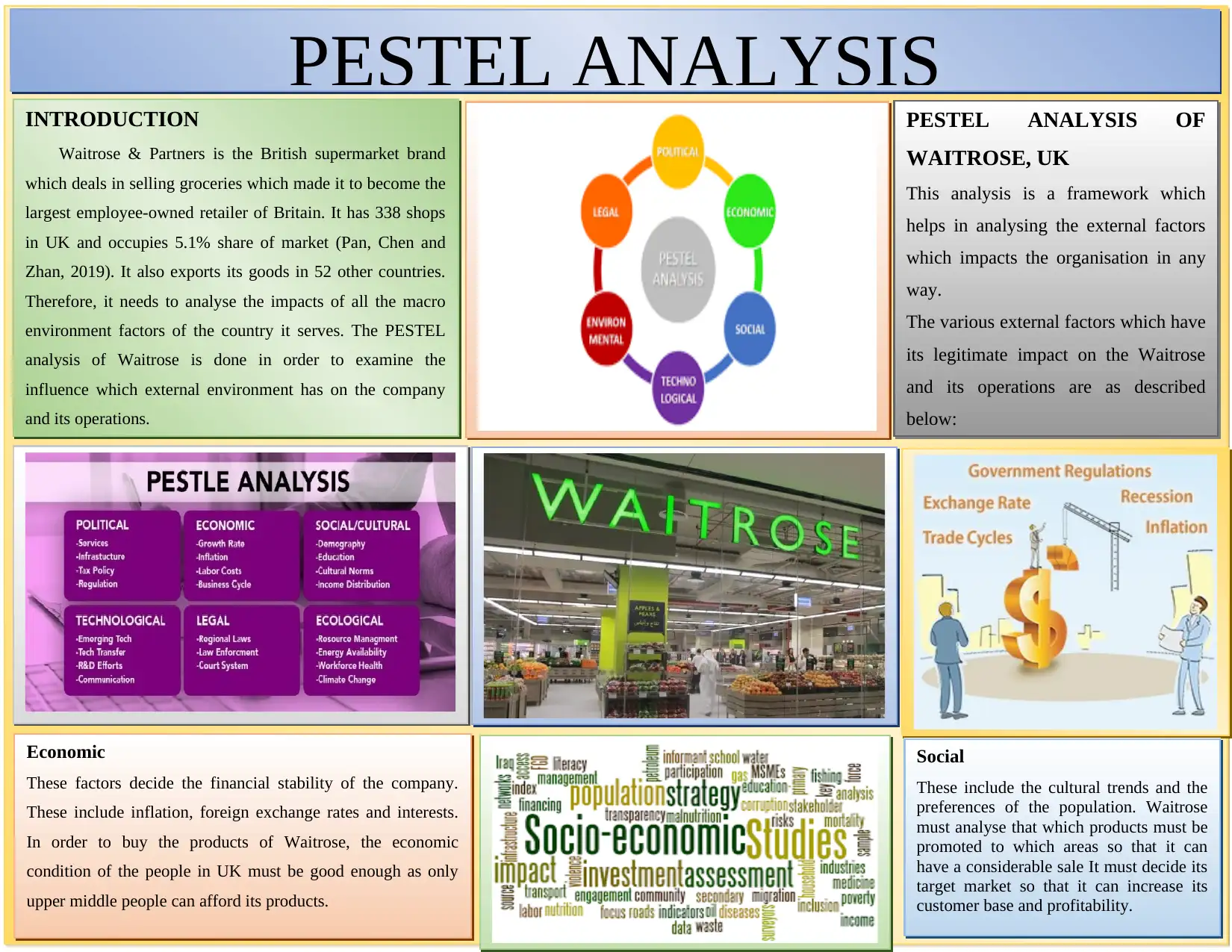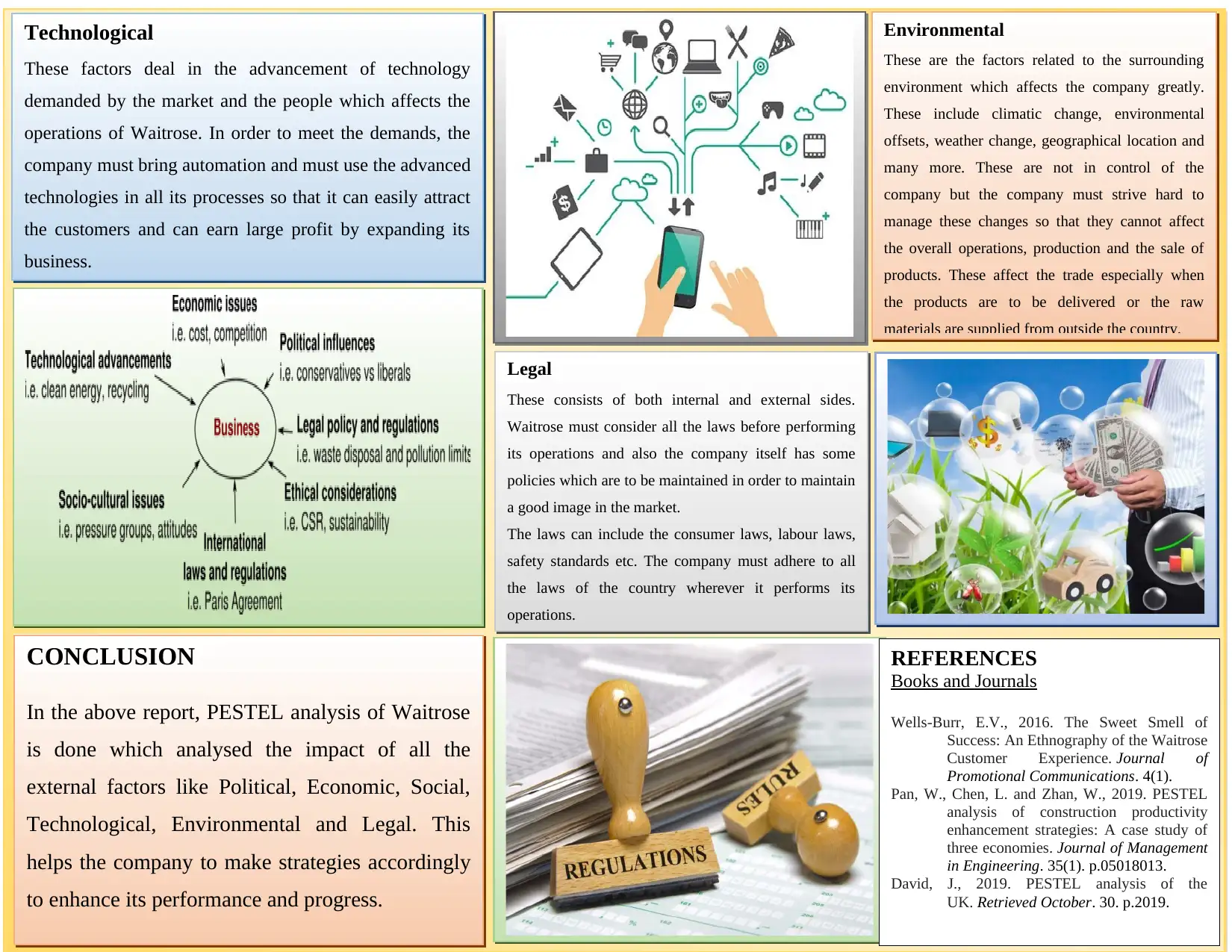Analysing Waitrose: A Detailed PESTEL Analysis of the UK Market
VerifiedAdded on 2023/01/05
|2
|628
|1
Report
AI Summary
This report delivers a comprehensive PESTEL analysis of Waitrose & Partners, a leading British supermarket chain, to evaluate the impacts of various external macro-environmental factors on its operations and strategic decisions. The analysis covers political, economic, social, technological, environmental, and legal aspects affecting Waitrose in the UK market. Economic factors such as inflation and exchange rates, social trends influencing consumer preferences, technological advancements driving automation, environmental concerns impacting supply chains, and legal regulations governing business practices are all examined. The report concludes by emphasizing the importance of this analysis in enabling Waitrose to formulate effective strategies for enhancing its performance and achieving sustainable growth within a dynamic and competitive market landscape. Desklib provides students access to solved assignments and study tools.
1 out of 2








![[object Object]](/_next/static/media/star-bottom.7253800d.svg)